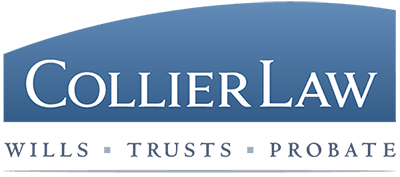Overview of a Successor Trustee’s duties and responsibilities
A Successor Trustee’s General Duties
A successor trustee is authorized to deal with all facets of the trust estate. The successor trustee owes each beneficiary and each creditor a fiduciary duty. They need to treat the trust assets with the same standard that a bank uses when it safeguards assets. They must administer the trust solely in the best interests of the beneficiaries. A successor trustee also owes the beneficiaries a duty of impartiality – they cannot prefer one beneficiary over another. They must control and protect all trust property. A successor trustee also must keep records. Finally, a successor trustee has to inform and report regarding trust administration.
Trust Checking Account and Tax ID Number
A separate Tax Identification Number for the trust must be assigned by the IRS after the grantor passes away. A new trust account is set up under this Tax ID Number. That centralized account generally receives all of the assets as they are consolidated and old accounts are closed. An attorney or tax professional can assist you with ensuring the Trust name is correct, as many trusts are identified by modified names after the grantor’s death.
Notices
A trustee must keep “qualified beneficiaries” of the trust reasonably informed about trust settlement and of the material facts necessary for the beneficiaries to protect their interests. Qualified beneficiaries are the primary and secondary beneficiaries of the trust and are to receive assets from the trust. Qualified beneficiaries must promptly receive certain information, including a complete copy of the trust along with a notification that the trust became irrevocable upon the death of the Grantor or Grantors.
At least annually, and upon the termination of the trust, a Trustee Report must be sent to certain individuals. The report must include a list of trust property and liabilities, the market value of all assets, and all receipts and disbursements of trust property. This requirement can be waived if all qualified beneficiaries agree, but it is not always a good idea to waive this requirement.
Inventory
An Inventory of the trust assets should be compiled and provided to the beneficiaries. If an asset is owned solely in the decedent’s name, then a court process may be required to transfer property from the decedent to the trust.
Tax Returns
A successor trustee will need to see that the final income tax returns are prepared for filing with the State and the IRS. If fiduciary income tax returns or other returns are necessary, a successor trustee should also ensure that those are prepared. The successor trustee also must ensure all estate-related tax returns are filed promptly. If estate and gift tax returns are filed, qualified appraisals may be needed for certain assets.
Distributions
When all the necessary tax returns have been filed and creditors have been paid, the trust will be ready for distribution. A successor trustee then prepares a final Trustee’s Report, accounting for all receipts and disbursements of the trust property to the beneficiaries, which will include a proposed distribution. The Trustee must also disclose any fee they propose to take. Once the proposed distributions are approved or a time to object has passed, the assets are distributed to beneficiaries, along with receipts which they sign.
How long does Trust Settlement take?
Trust Settlement can be started immediately after death and often takes between six and eighteen months. Some tasks cannot be tackled until the death certificate is available.
Factors that can increase the time and expense of trust settlement:
- Disputes among heirs or beneficiaries
- Real property that must be sold
- Individual stock or bond certificates that must be processed
- Complicated tax matters
What are the costs involved?
Under Oregon law, a Trustee is entitled to a fee for the work of settling the Trust. The Trust may provide the amount of compensation for a Trustee, or the Trustee may take reasonable compensation based on the services provided. A Trustee generally provides notice of their intent to take compensation and the amount of that compensation before paying themselves. Many Trustees choose to track their time and charge an hourly rate. Other costs include county filing fees and any other necessary expenses, such as appraisal fees. Attorneys and their support staff generally charge an hourly rate for their services, and legal fees can be paid from trust funds.
This document provides a summary of the basic obligations of a successor trustee of a trust. It is not a substitute for legal advice. If you are serving as a Trustee, we recommend working with an attorney who can advise you on the specific issues you are handling.
